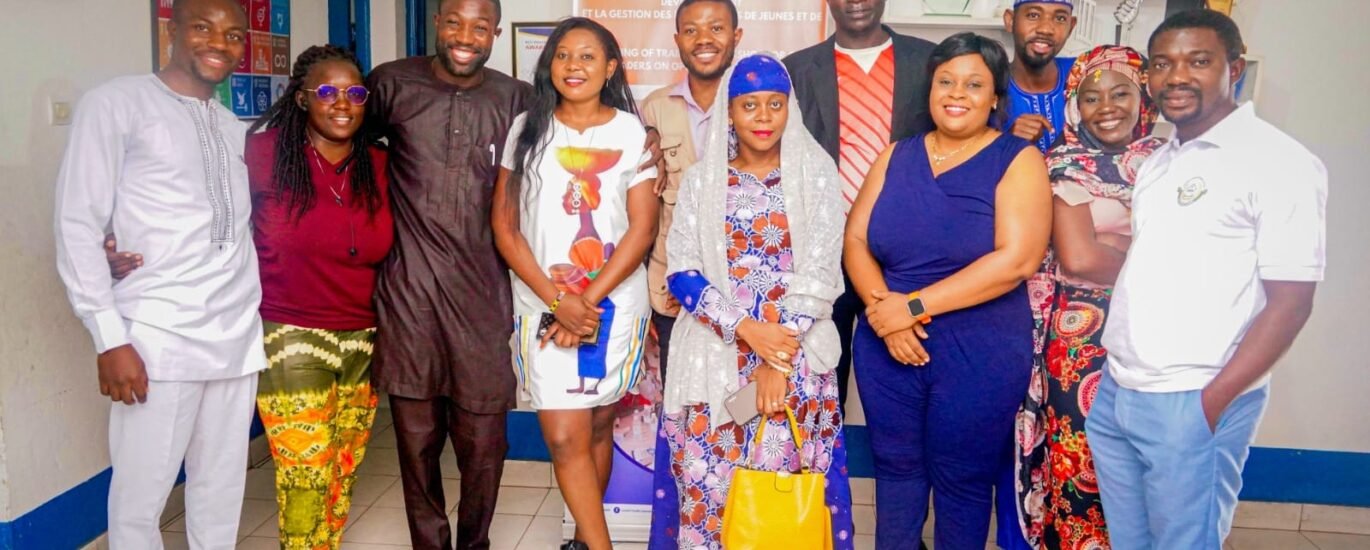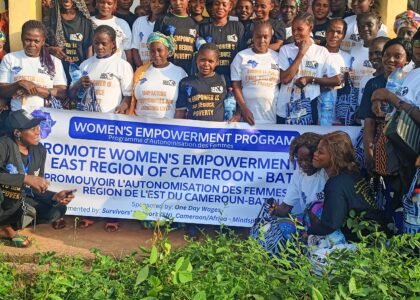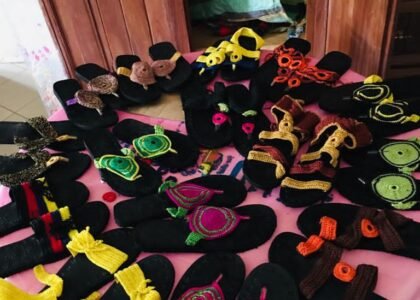In 2023, we marked significant milestones in the fight against human trafficking and the empowerment of vulnerable individuals. Early in the year, we relocated our office to Bertoua, in the East Region of Cameroon, to better serve our mission.
In January, we rescued a teenage girl from Kumba who had been falsely accused of having a sexual relationship with the principal of Cameroon College of Arts and Science (CCAS). Her story had made national headlines, and the weight of public scrutiny was immense. With the intervention of the Delegate of Social Affairs, she found refuge in our Safe Home for over two months while attending court hearings. Her case had been deeply troubling—witnesses had lost their lives during the investigation, and even her own uncle had not supported her during the crisis. Eventually, the Presbyterian Church Cameroon stepped in and relocated her to Buea, enrolling her in one of their colleges to give her a fresh start.
During the same month, we rescued another teenage girl who had suffered three years of sexual exploitation at the hands of her biological father. He had kept her silent through threats, warning that he would commit suicide if she told anyone. Tragically, she had become pregnant, and with the assistance of Social Affairs, we had provided her a safe haven in Bertoua, far from her abuser. Though authorities had been prepared to prosecute him, her mother pleaded for leniency, and the case had been left unresolved. We ensured that the survivor enrolled in school in the East Region, while her mother took custody of the baby in Kumba.
We also provided support to three survivors from Kuwait who had been referred to us by the International Organization of Migration (IOM). We had been offering counseling and capacity-building sessions, seeking funds to help them establish themselves through our economic empowerment initiatives.
Raising awareness had remained a cornerstone of our work. In 2023, we had expanded our sensitization efforts to schools in Bertoua and nearby rural communities, as well as local media houses, ensuring the message of human trafficking prevention reached far and wide. Additionally, we had taken to the villages of Lom et Djerem in July, putting up posters to commemorate the World Day Against Trafficking in Persons, a campaign co-sponsored by IOM.
Recognizing that economic vulnerability was a key driver of trafficking, we had launched a massive agricultural project aimed at sustainable development. Since January, we had cultivated ten hectares of cassava, employing over 200 women in various stages of farming—from tilling to planting and weeding, with work continuing until the harvest. Women had been compensated through different payment models, including daily, weekly, monthly, and per hectare rates. Our long-term vision had been to establish a processing factory to turn cassava into flour and flakes, supplying the local community at break-even prices during times of scarcity.
Beyond direct intervention, we had prioritized survivors’ inclusiveness in the fight against human trafficking. Under the leadership of our human resource personnel, Miss Ngwepekem Eunice Foloh, we had held a series of virtual meetings with survivors across Cameroon to foster engagement. We had been incredibly proud that Eunice won a grant from Freedom Fund, which had allowed us to organize a groundbreaking three-day workshop—the “Survivors Leadership Academy, Cohort 1”—designed to train survivors to become leaders in advocacy efforts. The academy, a joint effort between Survivors’ Network Cameroon and Free The Slaves, had been held in Nairobi, Kenya, bringing together 12 survivor advocates from five African countries: Cameroon, Tanzania, Kenya, Uganda, and the Democratic Republic of Congo. Our vision had been to continue expanding this initiative, helping survivors evolve from advocates to full-fledged leaders who were equipped to participate in all aspects of the anti-human trafficking fight—from awareness campaigns to policy development.
Through these collective efforts, we had reinforced our commitment to protecting survivors, raising awareness, and fostering economic independence. Our mission had not only been to rescue those in immediate danger but also to create long-term solutions that would prevent exploitation and ensure self-reliance within vulnerable communities.






